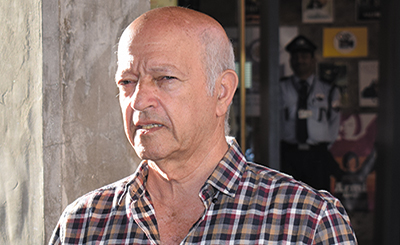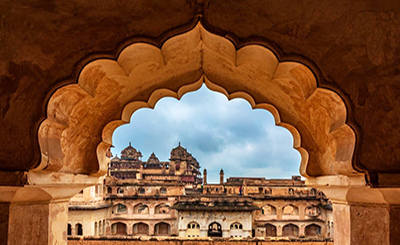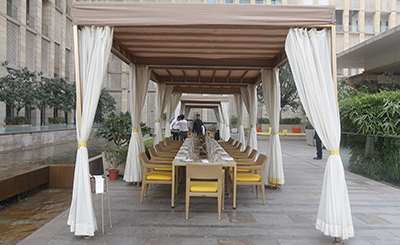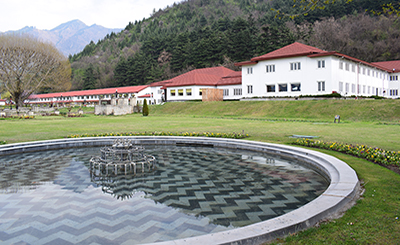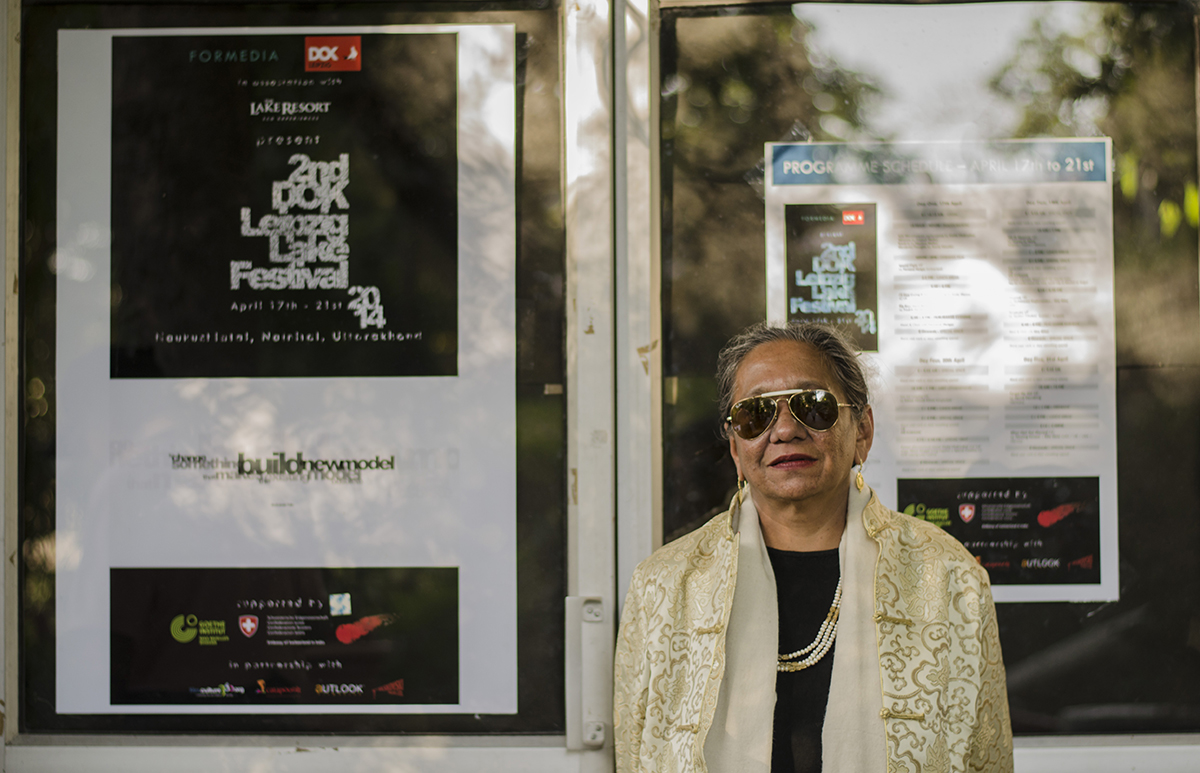
Neelima Mathur at the Lakeside Documentary Festival held in Nainital. Photo courtesy of the festival
Neelima Mathur, curator, Lakeside Documentary Festival, on the docu filmmaking scene in India and the challenges of holding a festival dedicated to short films that brings the world to Nainital
Set in the sylvan setting of the Himalayas foothills, the seventh edition of the four-day Lakeside Documentary Festival (LDF) concluded at Naukuchiatal in Nainital (Uttarakhand) on March 18, sparking debates about various aspects of the genre of filmmaking. Conceived by well-known documentary filmmakers Neelima Mathur and her husband Pramod Mathur, the festival began its journey in 2013, with creative support from DOK Leipzig, among world’s oldest (it enters its 62nd edition this year) documentary festivals held every year in Germany, and various documentary platforms across the world.
The festival dedicates itself to showcasing non-fiction cinema’s contemporary trends from different parts of the world: there are no parallel events, no sessions for pitching and marketing films. The films are handpicked by Neelima out of the brief which she receives from various documentary films agencies. And the brief changes every year: sometimes, the focus hovers over protagonist-driven films, at other times, over films about issues. From the initial list of 50 odd documentaries, about 12-14 make the cut and are subsequently showcased at the festival.
With distributors having a wielding power over every aspect of the film, including its production and promotion, the world of documentary filmmaking has been rife with challenges. However, for the festival, Neelima tries to bridge the chasm between content and commerce (screening fees), with a little help from some distribution agencies, including Cat&Docs. The audience at the festival is a medley of people from Nainital and its neighbouring hill stations, including Haldwani, Bhowali and Bhimtal.
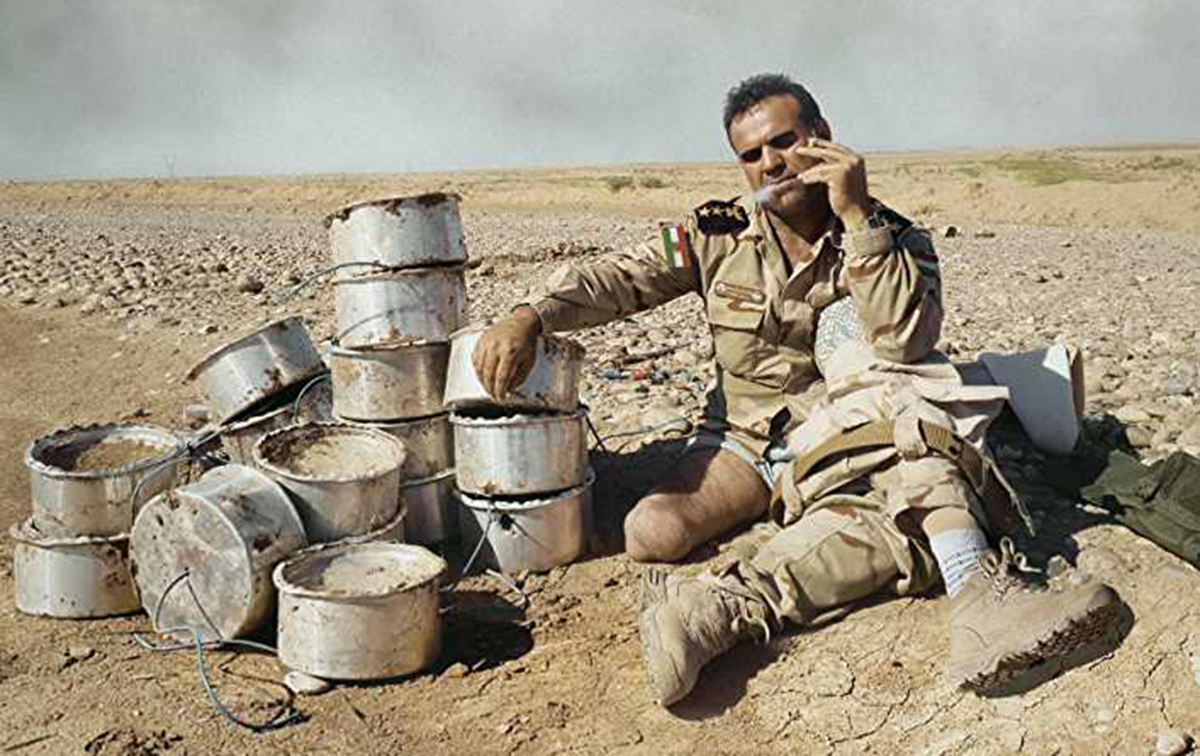
A still from Deminer, (Sweden, 2017), directed by Hogir Hirori and Shinwar Kamal
The opening film was Deminer (Sweden, 2017), directed by Hogir Hirori and Shinwar Kamal. It follows the life and death of Colonel Fakhir Berwari, a Kurdish Major in the Iraq army, who disarmed thousands of landmines during the aftermath of Saddam Hussein and Daesh’s occupation of Mosul. It was followed by Happy (Germany, 2017) directed by Carolin Genreith, tells the story of the filmmaker’s 60-year-old father, who regularly flies to Thailand after marrying a young woman there. Was this love or more of business? Genreith wonders. The film, which culminates with her visit to Thailand where she discovers that it was indeed real love, explores the question of what love actually means in the autumn years.
The second day started with Poetess (Germany, 2018), directed by Stefanie Brockhaus, Andreas Wolff, the poignant story of a woman who tries to speak out against patriarchy and extremism, and stands up for a peaceful Islam, in Saudi Arabia. Next up was Down the Deep Dark Web (Israel, France, 2016), directed by Duki Dror, Tzachi Schiff, which suggests how dark net, part of the internet that cannot normally be visited with run-of-the-mill web browsers, is a boon and a bane at the same time. The power of dark web lies in the fact that it cannot be banned or controlled by some agency. It also asks the pertinent questions about the surveillance state, the right to privacy and how the narrative has gone beyond the binary of state and citizen.
Another short in the line was Pickle (US, 2016), directed by Amy Nicholson, which delves into the complicated relationships humans have with pets. It tells the story of a couple’s dedication to homing sick and deformed animals. The last film of the day was Raghu Rai: An Unframed Portrait, (India, 2016). Directed by his daughter Avani Rai, it charts the photographer’s life, achievements and one of his journeys to Kashmir.
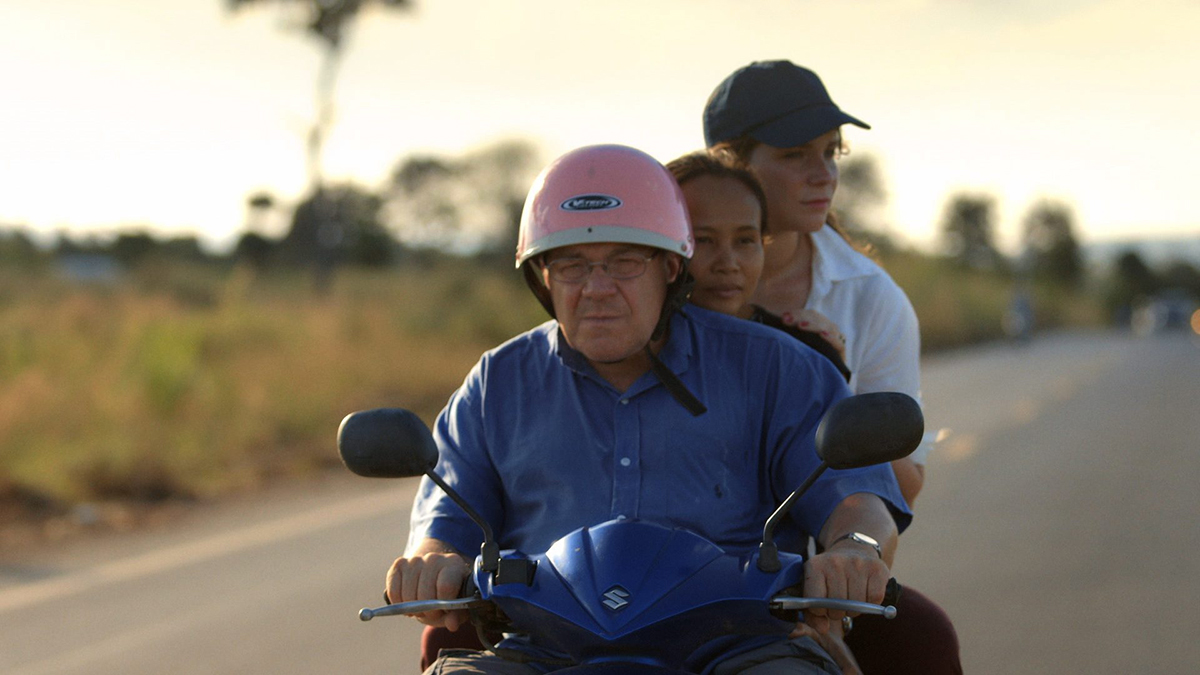
A still from Happy (Germany, 2017), directed by Carolin Genreith
The third day started with An Engineered Dream (India, 2018), directed by Hemant Gaba. The film follows the lives of four teenagers travelling from different corners of India to Kota, a coaching city where they cage themselves in a system that produces nothing but machines whose only mission is to compete in a rat race. Next in the line-up was Do You Believe in Love (Israel, 2013), directed by Dani Wasserman, which tells the story of Tova, who does not believe in love after becoming paralysed, but works tirelessly to find it for everyone else. Another important film of the day was You Have No Idea About How Much I Love You (Poland, 2016). Directed by Pawel Lozinski, it is the story of a mother and daughter and shows how psychotherapy can be helpful in reconciliation within the family members and how important it is to come out of the shell and talk to each other. Next came, The Running Hawker (India, 2017), directed by Abhijnan Sarkar and Chandan Biswas, which follows the lives of running hawkers on the trains of South Bengal in India over a period of three years. The last film of the festival was Ziga Virc’s docufiction-mockumentary, Houston, We Have a Problem (Slovenia, 2016), which explores the myth of the secret multi-billion dollar deal between the United States of America and Yugoslavia for the purchase of the latter’s clandestine space programme in the early 1960s. Based on facts, the film shows how historical narratives form our imagination and how we join different events to build an understanding about the politics around us.
Excerpts from an interview Neelima Mathur, curator, LDF:
Tell us about the festival’s journey over the last six years.
We have built a group of loyalists who are not hardcore filmmakers, but members of the audience who enjoy and appreciate documentaries. But it is still hard to entice filmmakers to come to a festival that does not offer awards, a pitching forum or platform for lobbying and networking. Funding, of course, remains a pre-occupying and worrisome factor. I am very grateful to the philanthropists who support us as and when required. The Lake Resort, where the festival is held, is set amid an oak forest facing a lake. Its owner, Mahendera Verma, has been a staunch supporter and associate partner since the festival’s inception.
What are the challenges for you as a curator of independent films?
I do have great international and local support which makes the challenges easier to handle. Finding films that would appeal to audiences here is really not easy — films that can be grasped and appreciated without knowledge of a particular country or history. There are also cultural issues that come in the way of the selection of a particular film — an explicit documentary on homosexuality, for instance. I can make the choice but I choose not to. This is mainly because, in principle, I started with the intent of not banking on controversial or sensational films for appeal. I am genuinely pleased that people enjoy the documentary without those elements. The other is duration. Many good international documentaries are 90-minute-long and some are even of longer duration. But our audiences are unable to hang on to that length and begin to get shifty. Apart from that, it is usually about which film to leave out. I usually have a “leftover” list that we keep going back to.
How do you plan your edition?
We try to incorporate elements like workshops, panel discussions. Sometimes, when the budget permits, we bring the aid sector in connect with documentary filmmakers. This year, we tried to have the “Meet the Filmmaker” initiative with the Bedi brothers — wildlife filmmakers Ajay Bedi and Vijay Bedi — whose works foreground the environment where the festival is held.
How is the selection procedure? How do you manage to procure such diverse films?
The selection process is intense and long drawn-out. Over months, I converse with the heads of programmes of each of the partnering European festivals with a brief that is modified for each edition (based on the feedback). They send a primary list and we read the synopses and view trailers to make our selection. Subsequently, we receive screener links of the full films and make the next level of choice. Further to this, we connect with the filmmakers or distributors. This stage is hard because the demand for screening fees can be a deterrent. We try to raise it from embassies. In other cases, we somehow squeeze it into our budget after literally begging for a reduction. Most international filmmakers are very cooperative and do reduce or waive the fee at our plea. That is the most gratifying part of the exercise — the international spirit of the documentary community.
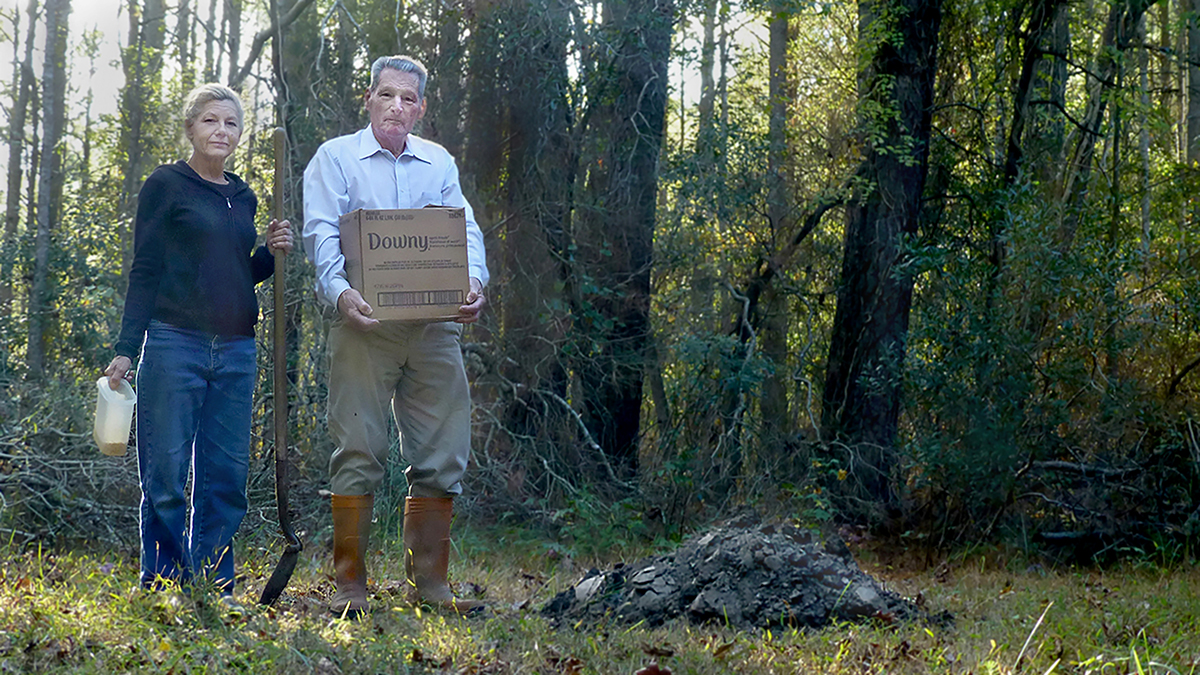
A still from Pickle (US, 2016), directed by Amy Nicholson
Why do you restrict it to documentaries only? Do you receive requests to expand it?
The documentary has not received attention in India. It has not been given the status that a creative form that celebrates the democratic voice and leads to debate and action should be given. This festival celebrates the art of creative documentary filmmaking.
Additionally, most documentary festivals in India are thematic or seem to revel in an element of the controversial or sensational — for effect. I would be happy to know about documentary film festivals in India that are professional viewing platforms of benchmark documentaries reflecting latest international trends. Expansion, in my view, would be to take this documentary festival to another level with appropriate budgets.
What do you think of the documentary scene in India?
Essentially, the documentary scene in India is pathetic. There is no structured, widespread support for this form — from the stage of idea development through production to screening and distribution. Documentary filmmakers in Europe and America have a plethora of opportunities. Those who want to make it professionally in the field of documentary in India are largely at the mercy of funding outside the country. That comes with baggage that impacts narratives and is a completely another story.
DocEdge in Kolkata is a sustained and commendable effort that provides opportunities. The Indian Documentary Foundation has endeavoured to bring the NGO sector and socially-relevant documentaries on one platform with the help of erstwhile Britdoc, now Doc Society, of the United Kingdom.
Public Service Broadcasting Trust (PSBT) remains the only funder of independent documentaries but it has been unable to throw up competition in international market terms. That may largely be due to the fact that the quantity or number of films holds sway over quality that demands higher budgets and processes of appropriate mentoring in an international perspective. The state supports this initiative but does not promote it adequately — the screening times on Doordarshan are abominable. At the same time, some exceptional documentaries made with PSBT funding remain on the periphery and those filmmakers remain unknown. In documentary scene in India, a lot is about the “system” and who you subscribe to… unfortunately. I also daresay that this initiative is a kind of monopolistic mechanism at the national level that suits the state to make enough right noises about supporting the documentary in Parliament. The state does not truly promote diversity or competition in the documentary sector that would generate innovative creativity in this genre in India.
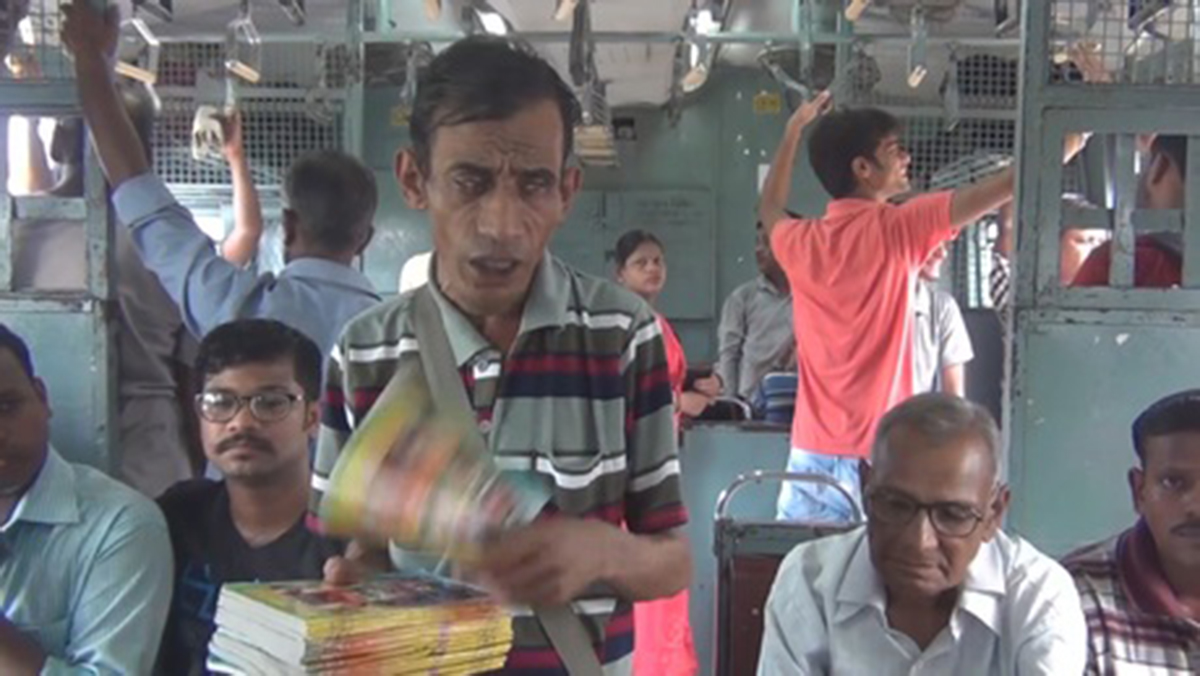
A still from The Running Hawker (India, 2017), by Abhijnan Sarkar and Chandan Biswas
Two of the Indian filmmakers in this edition are young. How do you think the new-age documentary filmmakers are changing or experimenting with the form?
Before you bring change, you need to be fully grounded in the various aspects of cinematography — sound recording, lighting, editing — and then the mother-of-all, narrative structuring. New-age documentary filmmakers still need a lot of exposure to the art of documentary filmmaking and international trends. They are not wanting in wishing to evolve and grow as creative filmmakers in the restricted circumstances they function in. Barring a few points, Abhijnan Sarkar and Chandan Biswas’ film, The Running Hawker, is a noteworthy step in Cinéma vérité.
More from Culture
Comments
*Comments will be moderated




